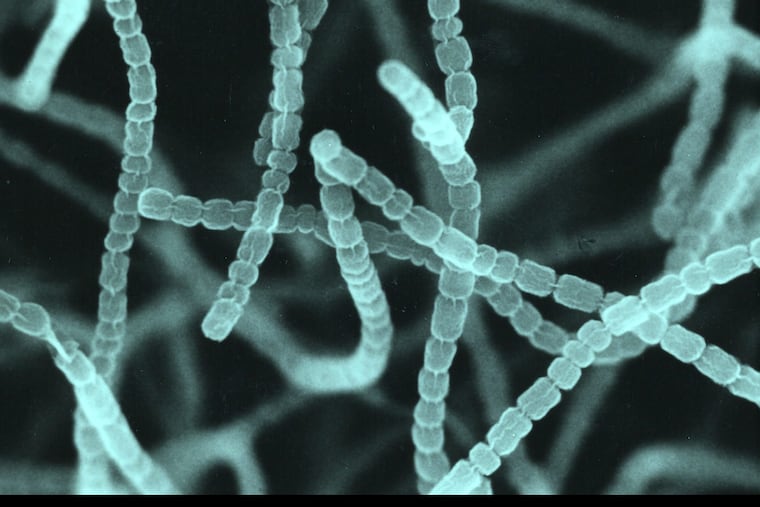Move over, birds. New Jersey considers naming a ‘state microbe.’
Many have tried, but few have succeeded to get microbes official state recognition. But Streptomyces griseus is a very big deal.

They found it in soil. It kills the bacteria that cause tuberculosis, cholera, typhoid, and dysentery, and has saved untold lives. This week, state senators in New Jersey pushed Streptomyces griseus closer to becoming the Garden State's official microbe.
But — believe it or not — the legislation is no sure bet.
The microbe was isolated in 1943 at the New Jersey Agricultural Experiment Station at Rutgers University, where Selman Waksman, a Ukrainian immigrant, studied and eventually worked as a biochemist. He and his graduate students Albert Schatz and Elizabeth Bugie discovered the medicinal properties of S. griseus, an otherwise humdrum bacterium, at a time when penicillin was still a new remedy.
S. griseus produces the compound streptomycin, the first antibiotic found on American soil. In fact, it was Waksman's team that coined the term antibiotic. The discovery cemented Rutgers' legacy as a powerhouse of antibiotic research.
In a 33-0 vote, the New Jersey Senate approved a bill that would honor S. griseus as the state microbe. The legislation is pending in the state Assembly.
The process of appointing state microbes has proven surprisingly contentious over the years.
Wisconsin was the first to try — and fail — beginning in 2009. Lactococcus lactis, the essential bacterium for making cheese, was selected for the honor. The Badger State produced more than 3.1 billion pounds of cheddar (and other varieties) in 2016, yet the bill languished and eventually died in the Senate.
Hawaii failed to name Flavobacterium akiainvivens, a bacterium that munches on decaying akia, an indigenous plant with leathery leaves and yellow flowers, its state microbe five years ago. The plant has been used in traditional medicine.
Glenn Wakai, the Hawaiian senator who killed the F. akiainvivens bill, introduced a bill sponsoring Aliivibrio fischeri the following year. That bacterium helps the Hawaiian bobtail squid glow, but concerns over the widespread habitat of the squid eventually halted the legislation.
Oregon is the only state to have passed a bill officially naming a state microbe. In 2013, it honored brewer's yeast, Saccharomyces cerevisiae. According to the Brewers Association, Oregon ranks fourth in breweries per capita.
The tuberculosis-fighting S. griseus won Waksman a Nobel Prize in 1952. The discovery "changed the world," said Rutgers microbiologist Max Häggblom in a statement.
"The effort to name a state microbe," he said, "is the beginning of trying to educate everyone about what microbes are, what they do, when they're good, when they're bad, and their importance for humans."